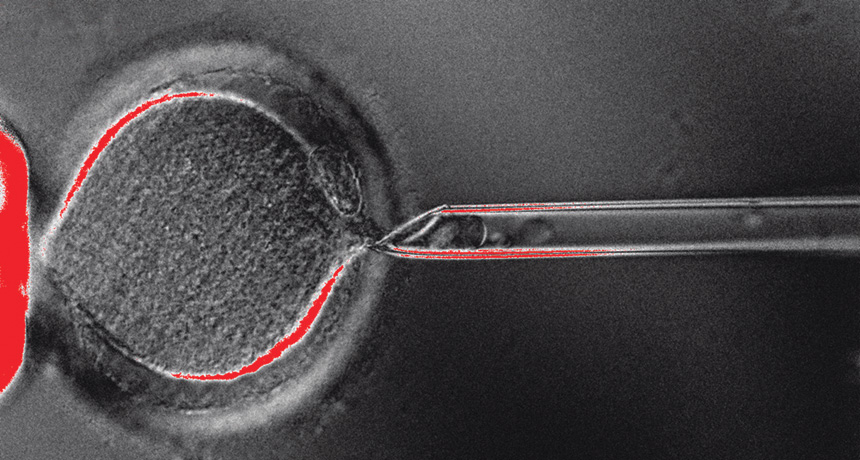
CELL MAKER Using a tiny needle and guided by a laser, researchers extract the DNA from a human egg. It’s the first step in a cloning procedure developed to create human embryonic stem cells.
Courtesy of M. Tachibana

CELL MAKER Using a tiny needle and guided by a laser, researchers extract the DNA from a human egg. It’s the first step in a cloning procedure developed to create human embryonic stem cells.
Courtesy of M. Tachibana